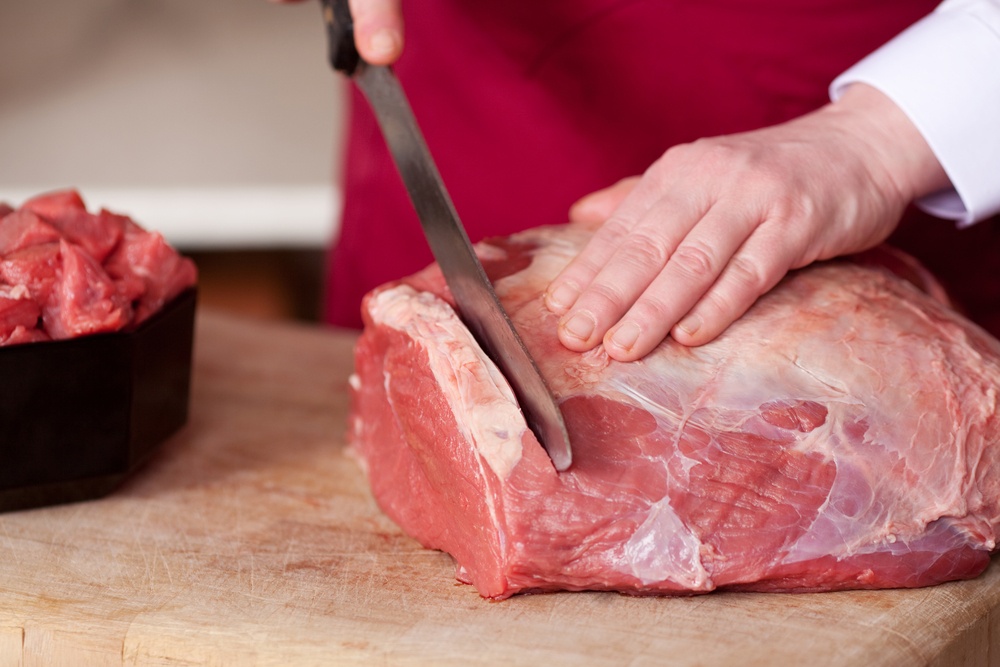Fitness: When to cut
The quick answer to this question is that you probably should not concern yourself with a cut right now. The article will explain why that is. The most simple and meaningful answer I could find to this was "Bulk until you hate your body, cut until you hate your life."
What is your goal?
Questions like "when to cut" usually derive from confusion and lack of patience of younger males and I am no exception. The fitness industry profits from selling secrets which actually are none to confused beginners. The only difference between a fitness model and you are, that they have an information and experience advantage over you, as they have been doing it for longer. Fitness is simple but hard. If you want to get deep on this read on the decision gap theory and how money can be obtained from it.
As many fitness articles are poorly written, some of my earlier ones included
Always remember that sex and relationships are two very different things. Looking like a poster boy might get you more sex, but does not necessarily make you happy long term. Only took me a decade to figure this out. Be smarter.
So if you enter the fitness world ask yourself to which group you belong. Are you in the game for
- Looks,
- Health or
- Performance
Cuts, as we will define them, only belong to the vanity department. This is fine, just be honest with yourself about it. It is not possible to pursue all of these three pillars of fitness with the same rigor based on limited resources and time. Prioritize these three for yourself to make your life easier and feel less confused. If looks are most important to you, you should read up and perform a cut at some stage. If health and performance are of most importance to you a cut will be of almost no relevance to you, unless you earn a living as a model or bodybuilder. For them looks = performance.
What is a cut?
A cut is a clear term in bodybuilding which is used to describe the process of cutting fat to look more defined and lean. The easy way of putting is that this is what you do to get a six pack, ripped or chiseled, whatever you want to call it.
From a body perspective, it is the process of burning fat in which energy has been stored for times when there is not enough energy being supplied to it through eating. As long as humans are concerned energy usually = food. So a cut is equivalent to a fat loss based on a calorie deficit caused by exercising more and eating less.
A calorie deficit occurs when you burn more calories than you eat. How many calories a day you should put into your body depends on your age, activity levels and goals. If you are more performance heavy it is usually wise to have a little caloric surplus so that you have enough strength for the gym. If health is your main priority pick a goal weight and keep the calories balanced so that you stay there. If looks are your main concerns you will have more time periods in which you go into caloric deficit.
In short, overweight people want to lose weight or fat, gym bros and bodybuilders do a cut. It's the same thing reall but in a different context.
How old are you?
Your age will determine to a huge degree whether a cut makes sense for you or not. The younger you are, the more likely it is that you should not cut and focus on bulking instead. Make use of your testosterone as long as you have it.
Gaining muscle mass becomes increasingly difficult the older you get as male bodies have been laid out to go through puberty and find a mate in this period. Once your body has fulfilled the purpose of reproducing your genes, you do not have to attract as many ladies anymore, but protect what you have. Think primal instincts and you get the idea. To everyone who is offended by this generalization, I gladly discuss your rage in the comments as I know this view is flawed but helpful to get the point across.
| Male | Female | ||
| Age: | T Level (ng/dL): | Age: | T Level (ng/dL): |
| 0-5 mo. | 75-400 | 0-5 mo. | 20-80 |
| 6 mos.-9 yrs. | < 7-20 | 6 mos.-9 yrs. | < 7-20 |
| 10-11 yrs. | < 7-130 | 10-11 yrs. | < 7-44 |
| 12-13 yrs. | < 7-800 | 12-16 yrs. | < 7-75 |
| 14 yrs. | < 7-1,200 | ||
| 15-16 yrs. | 100-1,200 | ||
| 17-18 yrs. | 300-1,200 | 17-18 yrs. | 20-75 |
| 19+ yrs. | 240-950 | 19+ yrs. | 20-75 |
| Avg. adult male | 270-1,070 | Avg. adult female | 15-70 |
| 30+ yrs. | -1% per year |
This is a table of the Mayo Clinic as presented in the article testosterone levels by age. As you can see if you are a male between 15 and 20 please make use of mother nature and bulk as long as you can. You will regret not making optimum use of this time once you are old like me.
How long have you been training?
Apart from your biological age, your training age has to be considered. Many fitness models only start cutting after 2 - 3 years of building muscle. Depending on your genes there will be a natural ceiling of muscle you can build reach without steroids (some form of artificial testosterone you inject into your body to stay on puberty levels and keep growing).
Most so-called experts will agree that you reach this ceiling in 2 - 3 years. After that gains will become a lot harder and you should adapt your training accordingly by going on a slow diet or cut. Once you have maxed out, gains or cuts will come in years not months or weeks. Reconfigure your thinking accordingly.
Because of adult life happening around them, most people do not even get to that phase.
When is your season?
If you want to cut it makes the most sense to do this in the summer, unless this is the time of year where you have most of your sports competitions. In winter you can bulk as there are fewer opportunities to show off your body, most sports teams have no games on and Christmas is around the corner. In spring and autumn, most athletes and people who are interested in fitness have to perform to some degree in a sport. Here cutting can have a negative impact on performance as you undernourish your body.
Therefore, in my opinion, the best time to cut is the end of spring/beginning of summer for average joes. This is the time where a nice body is relevant and the demands of sports are usually a little less due to the summer holidays.
How to set reasonable goals?
Reasonable goals are always in relation to how long it took you to achieve something in the past. If it takes you two years to build a lot of muscle mass, you can not expect to get chiseled in a month with a reasonable approach. Here is the cut-rate you should look at
- 5 pounds 4 - 6 weeks
- 10 pounds 6 - 12
- 20 pounds 20 - 24 weeks
Stick with those. Rome was not built in a day. I know from experience that patience is not something you have in abundance in your teenage years. If you are a teenager reading this, the quicker you learn to think long term, the more successful you will be in your life. Getting ripped in a month is not a long-term plan.
Two examples
Here are two examples of young people searching for help from Reddit.
Example 1
I've been hitting the gym for about 7 months now this first 4 months I was doing basically a bro split, but I was barely improving in weights, since then I've been doing strong lifts and have been improving all my compound lifts at a good rate, I'm getting stronger and I look bigger, however I'm starting to notice the excess fat from my bulk.
I'm aiming to be finishing the cut by August as that is when I'm going away. So I'm just wondering if I should cut now or continue to do stronglifts while bulking to gain more muscle mass to get a better cut.
Any help appreciated, P.S I'm 19, 6"2 and 81kg
Also, how should I workout during a cut a bro split or continue
http://imgur.com/XO7Lmqb http://imgur.com/5JrYyoshttp://imgur.com/f2FHXpa
There's 3 pictures, I'm fairly sure I'm not fat, but I think if I keep having fat increases at the rate at which I've got now it will build up. I'm just unsure of how long it will take me to cut down as I'm a noob.
Example 2
I've perused the faq and search the subreddit, but really all I keep coming up with is, 'cut calories,' though I feel it's probably a little more involved than this.
Do I continue my strength training program as planned, or do I switch to hypertrophy, or switch to cardio? Do I keep my macronutrients the same? Do I still aim for 1gram of protein per 1kg of body weight a day?
Can someone please point me to a good write-up?
In example 1 we can see that the goal is to look good for August for a trip. Stronglifts 5x5 was used to get stronger and build muscle, which is a great program to achieve this. If I had to make an informed guess that this person is male.
If we apply what we have discussed in this article two things to mention. The first one is that with more focus he could have made better gains for muscle mass. The popularity of Stronglifts 5x5 derives from the fact that young adults want everything and do not prioritize their goals. If priorities would have been clear for looks, a bodybuilding template would have been picked instead of Stronglifts 5x5. So here is already the first strategic loss as 7 months have not been ideally used against this goal. I would say German Volume training would have been the better pick after three months of 5x5 or starting strength.
Next thing to point is that by focusing thoughts on the trip in August to look good at the beach to do whatever in Cancun, Europe or Florida, potential to build more muscle is being left on the table. If you have only about five years of maximum testosterone in your body, every year of those where you cut is a loss towards how you will look in your 30s. Of course, I also lacked that long-term angle in my teens, that is the point of this article.
In the second example, we can see how many beginners get lost in detail without stating the overarching goals and strategy. The barrage of yes or no questions on different concepts and which ones to pick would become a lot clearer if the overall goal was clear and stated. This is what I generally observe in fitness forums. Someone looks for advice without stating what they actually want to do specifically. The resulting feedback is, therefore, poorer than it could be if more context was given
Conclusion
The best time to cut is after you have already built an impressive frame, you are through your teenage years and have reached your maximum biological potential. This is when we exclude drugs as a means to prolong this cycle infinitely until you die of the side effects of drug abuse. A bit apocalyptic I know, but I like to point out that performance through drugs usually comes at the price of increasing your risk of dying. No pain, no gain.
The time frame to max out in your biological potential before gains get hard is usually three years based on reading far and wide in the (serious) fitness literature. This is also the time it usually takes to move from beginner to intermediate or upper intermediate level depending on how good your programming and dieting, how well you stick to it and how much time a week you are willing to commit.
Based on this, "When to cut" is actually not the most important question to ask, but rather "Can I commit for three years to bulking", if you are a young male who wants to optimise for having a lifelong six pack.
Further reading
- Can fitness be a hobby
- Can fitness change your life
- Can fitness trackers cause cancer
- Can you improve your fitness in a week
- Fitness Where to begin
- Fitness Where to start
- Fitness when ill
- Fitness: When to rest
- What fitness goals should i set
- What fitness is best for me
- Which fitness class is right for me
- Which fitness trainer certification is best
- Why fitness trackers are useless
- Why fitness matters to me
Resources
- Cut body fat and get ripped to the bone
- Fitness cutting Guide: Build Muscle while losing fat
- Is there a good guide for cutting
- Beginner question: Should I bulk or cut
- The fit five: Cut and conditioned
- The cutting phase in bodybuilding
- What does cutting mean?
- Ryan Hughes cutting program
- How to bulk and cut: Tips from a fitness model on bulking and cutting


